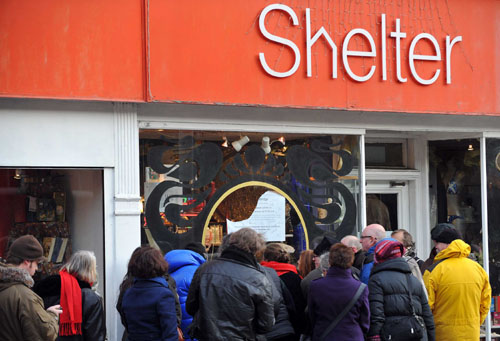A RECENT STUDY has revealed a huge gulf in the public perception of why people are homeless and the real reasons behind their struggle.
The Salvation Army recently carried out a study asking people what they believed was the main cause of homelessness and found a widespread misconception.
A third of Scots aged 18 and over believed the main cause of homelessness was alcohol or drug addiction with just 3% citing relationship breakdown as the main cause.
The Salvation Army carried out an online survey in January of over 300 residents at its centres for people experiencing homelessness- known as lifehouses.
The poll found that 43 % of residents cited relationship breakdown as the main cause of their homelessness, with 10 % of residents saying drugs or alcohol were to blame.
Salvation Army leaders say the recent findings prove greater education is needed to change people’s attitudes and end the cycle of homelessness.
The other main causes of homelessness cited by Salvation Army lifehouse residents were: a combination of issues comprising 16%, physical or mental health problems made up 13%, job loss were responsible for 11% of homeless people and 6% said debt was the main reason for the homelessness.
Major Howard Russell, Deputy Territorial Director of Homelessness Services at The Salvation Army, said: “One of the key hurdles we face is around people’s attitudes.
“The Ipsos MORI research has revealed the general public believe alcohol and drugs are the root cause of homelessness when, according to the people in our services, it’s actually relationship breakdowns.
“We believe educating the public on the reality of what causes homelessness is the way to overcome it.”
Major Howard added: “While the general public appear to be aware that there is a variety of causes of homelessness, a third of Scots incorrectly perceive drug and alcohol addiction to be the main cause.
“Yes, alcohol and drugs may be a problem for people experiencing homelessness. But, as our survey of our lifehouse residents shows, these are rarely the cause. Instead it tends to be the breakdown of a relationship – something that can happen to anyone at any time.”
Other stats in the Ipsos MORI survey include 85% of Scots said that at least some of the time they do nothing when they see someone who is experiencing homelessness.
Around 41% said they give cash at least sometimes, 21% said they sometimes purchas something for someone to eat or drink, and 3% said they at least sometimes find out where the nearest homelessness service is and pass on the details to the person who was sleeping rough.
Major Howard added: “Our extensive experience has shown us that homelessness can affect anyone, and so it’s surprising that the Ipsos MORI poll has revealed that almost half of Scots- 48%- don’t think that they, or someone close to them, could ever experience homelessness. At our lifehouses you’ll find people who were previously employed in a range of professions.”
The Salvation Army says the Ipsos MORI findings have revealed a lack of understanding around who can be affected by homelessness, with a third of Scots saying it is not at all likely that someone with a job that requires a professional qualification could ever become homeless.
Interestingly the survey of Salvation Army lifehouse residents shows that 72% worked before they experienced homelessness. In addition, 65% reported that employers treated them differently when they found out they were homeless. And 70% said people treated them differently because they are experiencing homelessness.”
If a member of the public sees someone rough sleeping The Salvation Army would like to suggest the public visit their local council’s website for 24 hour assistance on what they can do to help someone who is sleeping rough or experiencing homelessness.

